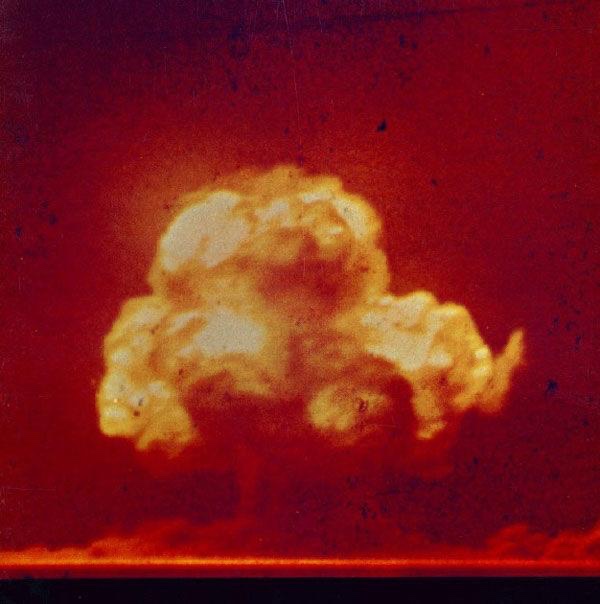William Lambers is the author of “Nuclear Weapons, The Road to Peace.” He has been published in Spectrum, the official magazine of the Comprehensive Nuclear Test Ban Treaty Organization.
GEORGE Kistiakowsky was there on the morning of July 16, 1945 when the first atomic bomb (Trinity) was detonated by the U.S. Army in the New Mexico desert. Kistiakowsky was a science professor at Harvard University and part of the Manhattan Project that developed the bomb.
He witnessed the power of the weapon that would be used to destroy Hiroshima and Nagasaki in Japan and end World War II. The Cold War arms race with the Soviet Union would follow, with even more powerful nuclear weapons.
Kistiakowsky warned in 1963: “I do not believe that we or any other nation can find any real security in a continuing arms race. … Perhaps even more threatening is the prospect of an increasingly large number of countries having nuclear weapons, with the concomitant increase in the probability that some will be used, and that uncontrolled escalation will follow.”
Today we are heading toward a new arms race with Russia and China. President Trump has withdrawn from arms control treaties and is even considering a nuclear test, according to a Washington Post report. Rivals India and Pakistan each have nuclear weapons that could lead to a devastating war. North Korea still has nukes and is the most recent nation to test explode one in 2017.
Will there be another nuclear test by North Korea or by the United States, if Trump has his way? We are seeing no action toward nuclear arms control and disarmament. With 14,000 nukes worldwide, the risk of nuclear war remains.
Kistiakowsky said that “even if we escape the ravages of nuclear war, we will still be indefinitely saddled with the heavy burdens of the arms race that distorts the best ideals of our free society and channels our resources away from constructive enterprises.”
Today, tens of billions of dollars each year are spent on nukes and modernization plans are driving costs up further. These precious resources are needed to combat the real threats of hunger, poverty, disease and climate change. No nation should waste money on nukes.
What can we do to reduce the nuclear threat and get back on track toward disarmament?
The Senate can start by finally ratifying the Comprehensive Nuclear Test Ban Treaty (CTBT), which bans all nuclear test explosions. The United States is one of eight key nations yet to ratify the treaty. (The others are China, Israel, Iran, North Korea, India, Pakistan and Egypt). Without U.S. leadership it is hard to see the other nations ratifying the pact.
Kistiakowsky was part of the early efforts to achieve a nuclear test ban treaty when he served as science advisor to President Dwight Eisenhower. The Limited Nuclear Test Ban Treaty, achieved in 1963 during the Kennedy administration, prohibited atmospheric, underwater and outer space nuclear blasts. But underground testing continued.
Kistiakowsky supported the limited test ban. But he also said we need to get a comprehensive treaty in place.
“I believe that the total prohibition of nuclear weapons tests, providing there would be adequate monitoring, of course, which is absolutely essential in this case, would have been far more effective in slowing down the arms race and would be in our national interest,” he told the Senate.
Ratifying the CTBT today would make this happen. We need to end nuclear testing globally once and for all.
The CTBT Youth group, which includes college students, is advocating for the Comprehensive Nuclear Test Ban Treaty. Our youth need to make their voices heard.
Seventy-five years ago, the Trinity atomic bomb test changed the world. With enough public outcry we can change it again by ending nuclear testing by treaty. We could regain momentum on the path toward eliminating nuclear weapons from the face of the earth.
William Lambers is the author of “Nuclear Weapons, The Road to Peace.” He has been published in Spectrum, the official magazine of the Comprehensive Nuclear Test Ban Treaty Organization.
No comments:
Post a Comment